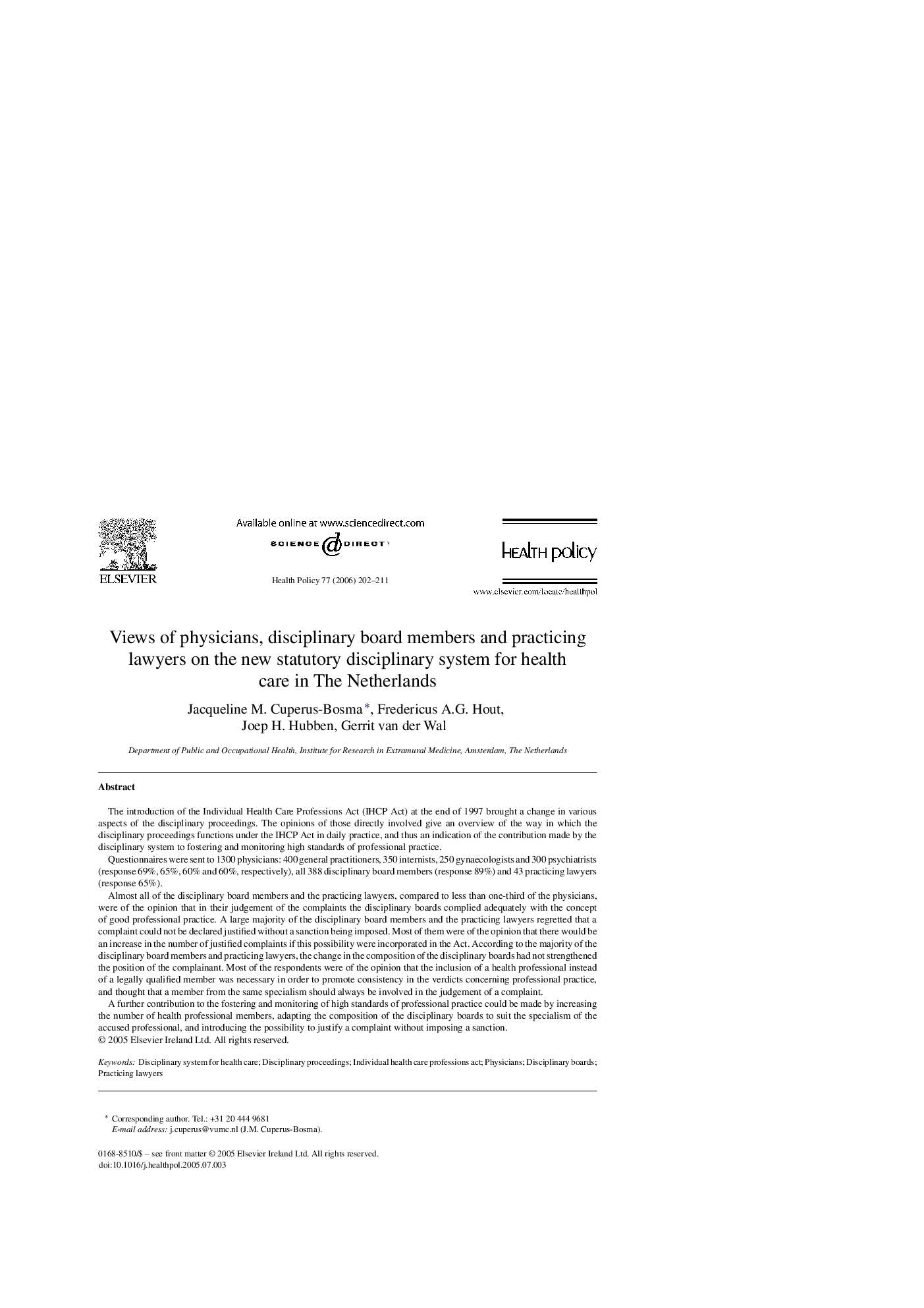| Article ID | Journal | Published Year | Pages | File Type |
|---|---|---|---|---|
| 4199063 | Health Policy | 2006 | 10 Pages |
The introduction of the Individual Health Care Professions Act (IHCP Act) at the end of 1997 brought a change in various aspects of the disciplinary proceedings. The opinions of those directly involved give an overview of the way in which the disciplinary proceedings functions under the IHCP Act in daily practice, and thus an indication of the contribution made by the disciplinary system to fostering and monitoring high standards of professional practice.Questionnaires were sent to 1300 physicians: 400 general practitioners, 350 internists, 250 gynaecologists and 300 psychiatrists (response 69%, 65%, 60% and 60%, respectively), all 388 disciplinary board members (response 89%) and 43 practicing lawyers (response 65%).Almost all of the disciplinary board members and the practicing lawyers, compared to less than one-third of the physicians, were of the opinion that in their judgement of the complaints the disciplinary boards complied adequately with the concept of good professional practice. A large majority of the disciplinary board members and the practicing lawyers regretted that a complaint could not be declared justified without a sanction being imposed. Most of them were of the opinion that there would be an increase in the number of justified complaints if this possibility were incorporated in the Act. According to the majority of the disciplinary board members and practicing lawyers, the change in the composition of the disciplinary boards had not strengthened the position of the complainant. Most of the respondents were of the opinion that the inclusion of a health professional instead of a legally qualified member was necessary in order to promote consistency in the verdicts concerning professional practice, and thought that a member from the same specialism should always be involved in the judgement of a complaint.A further contribution to the fostering and monitoring of high standards of professional practice could be made by increasing the number of health professional members, adapting the composition of the disciplinary boards to suit the specialism of the accused professional, and introducing the possibility to justify a complaint without imposing a sanction.
